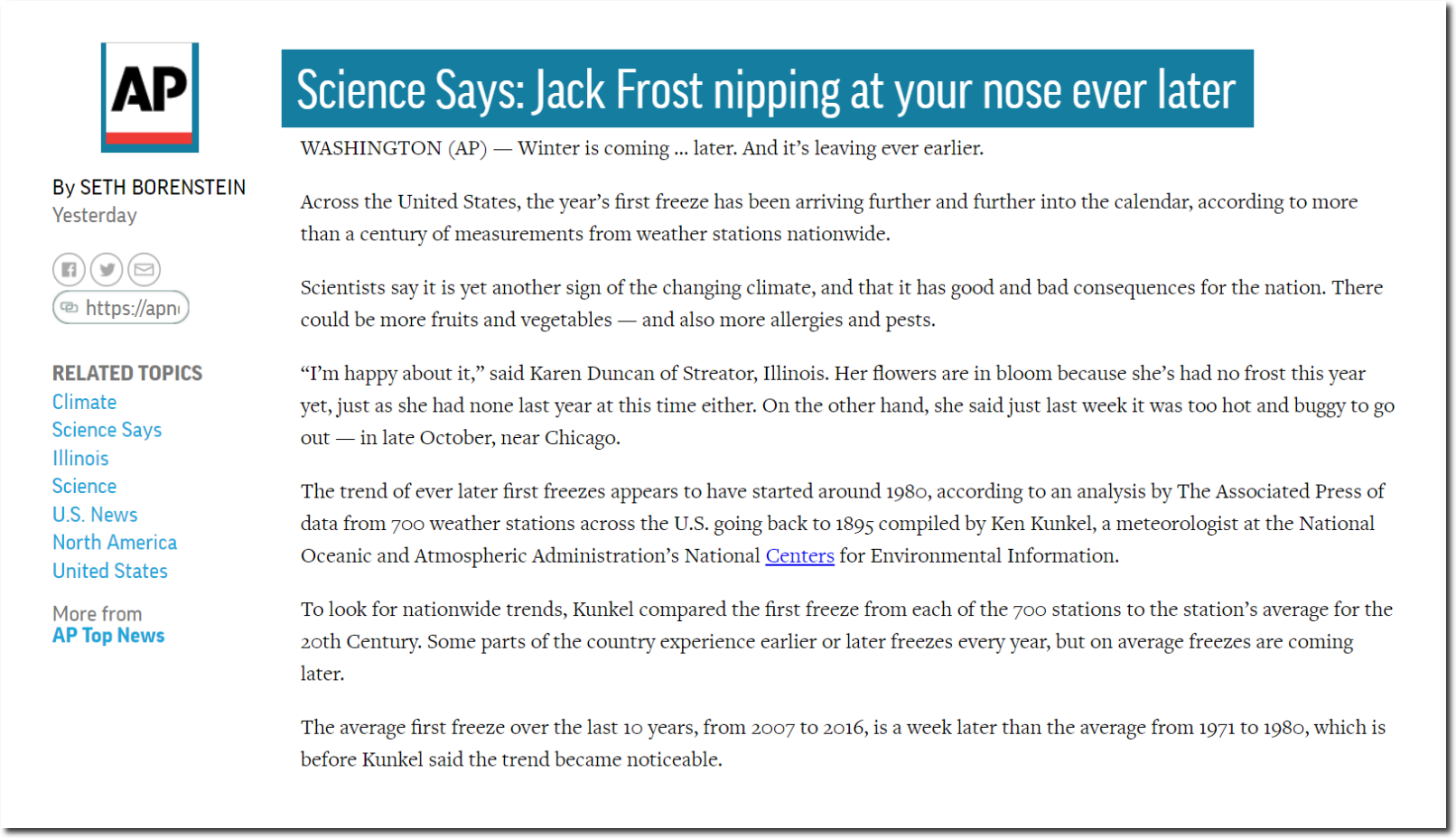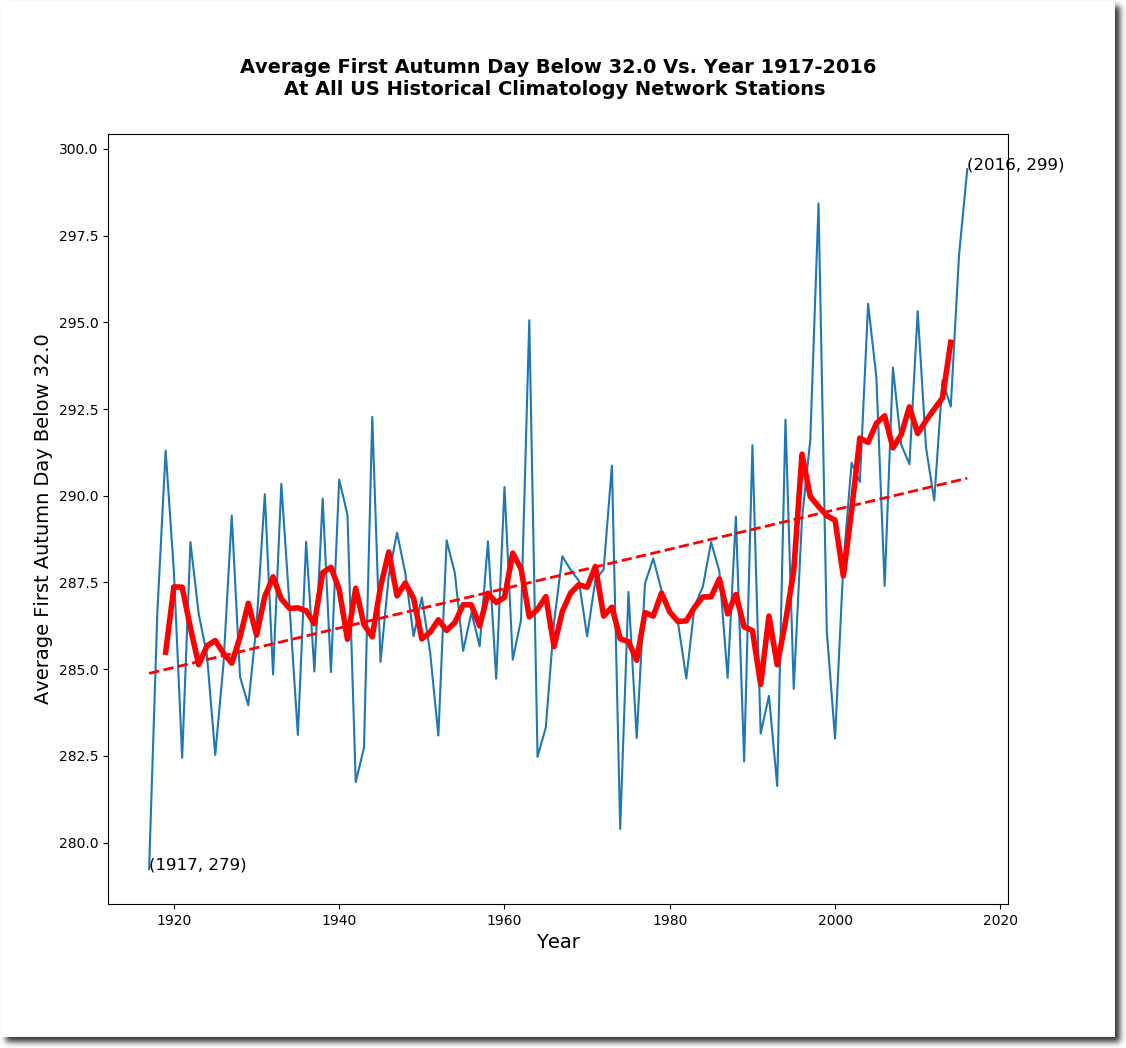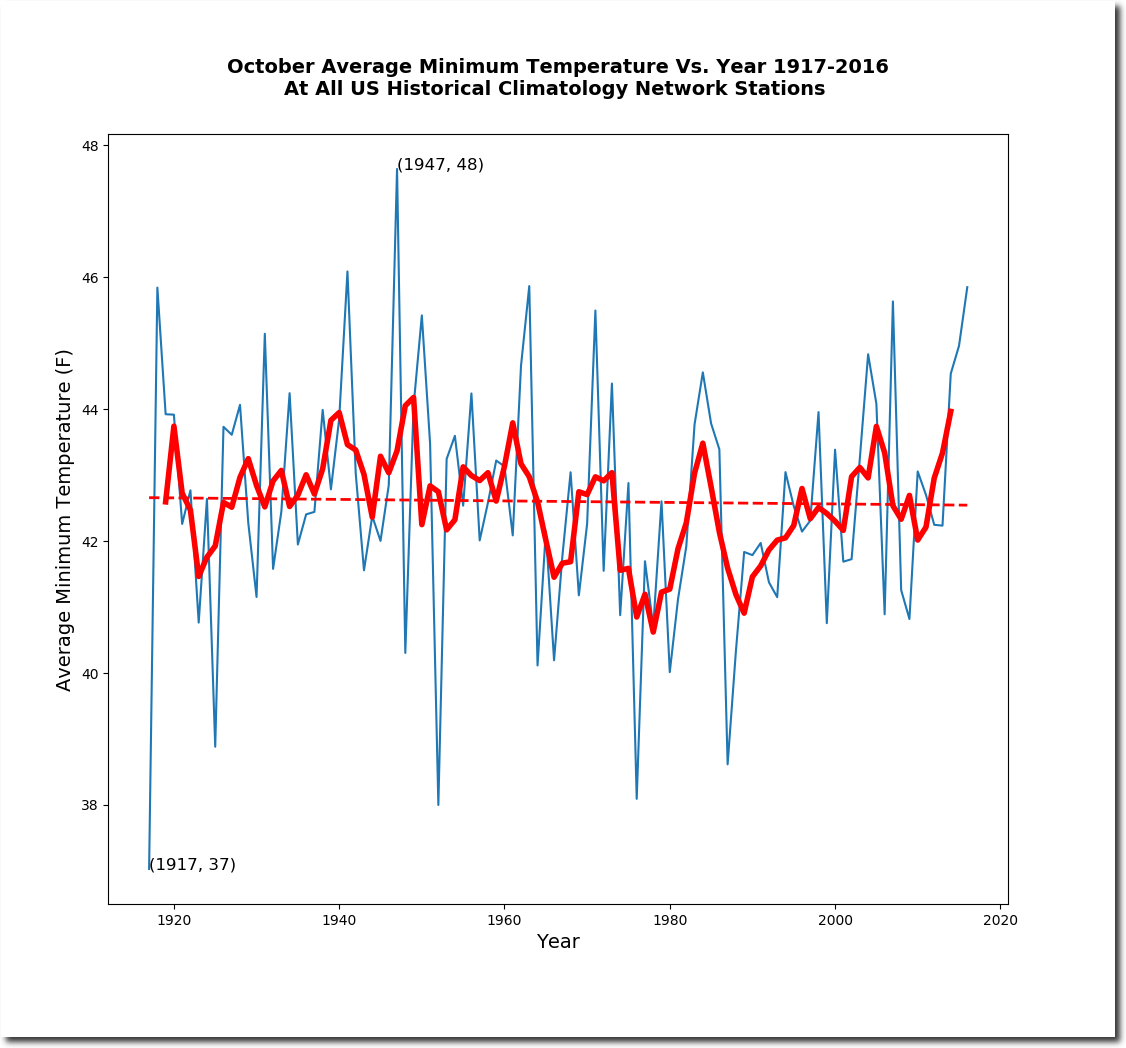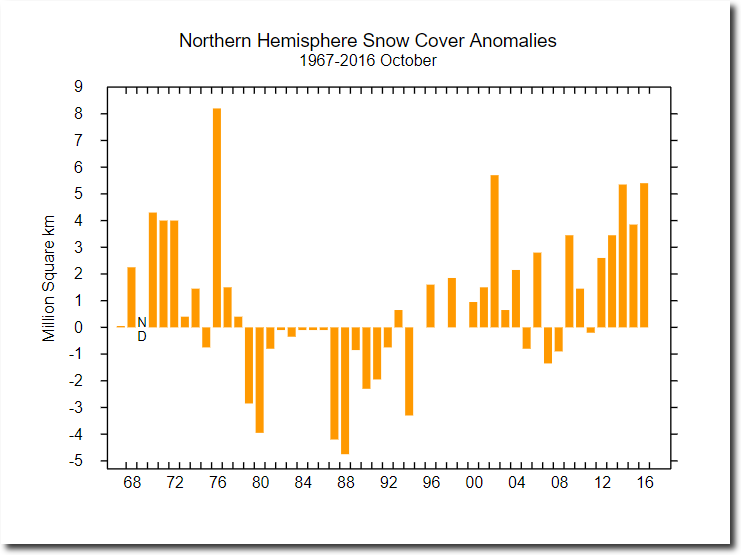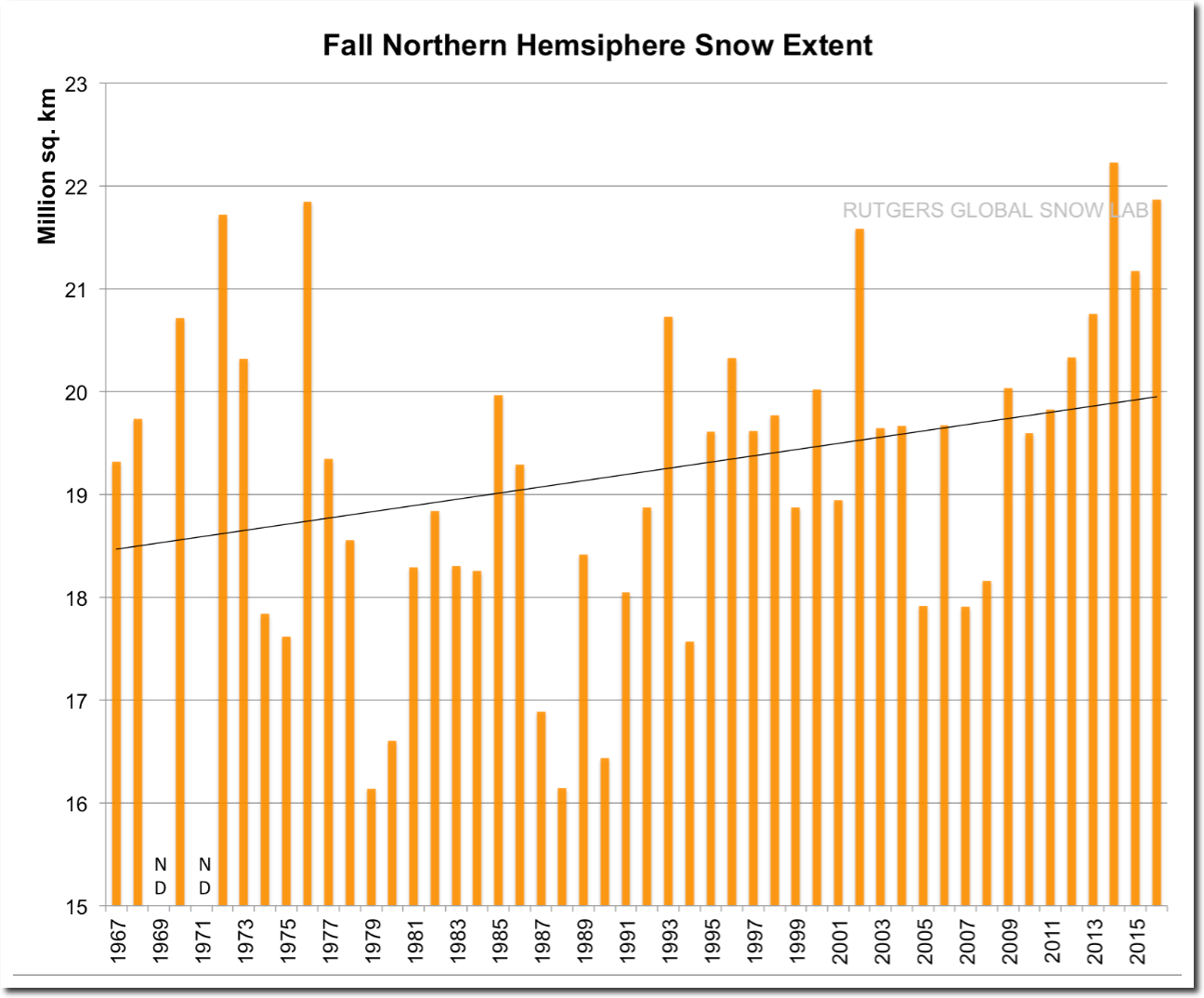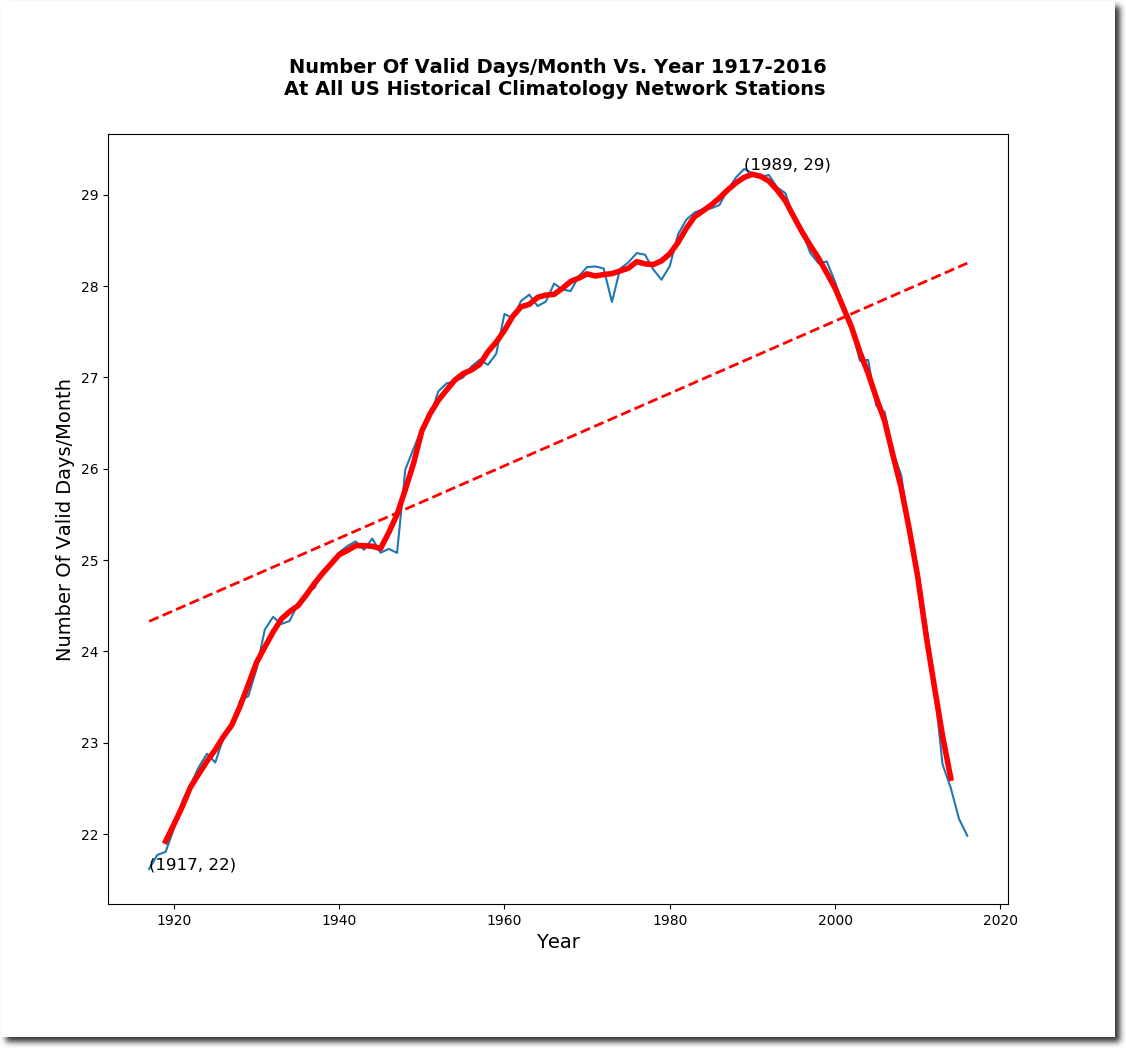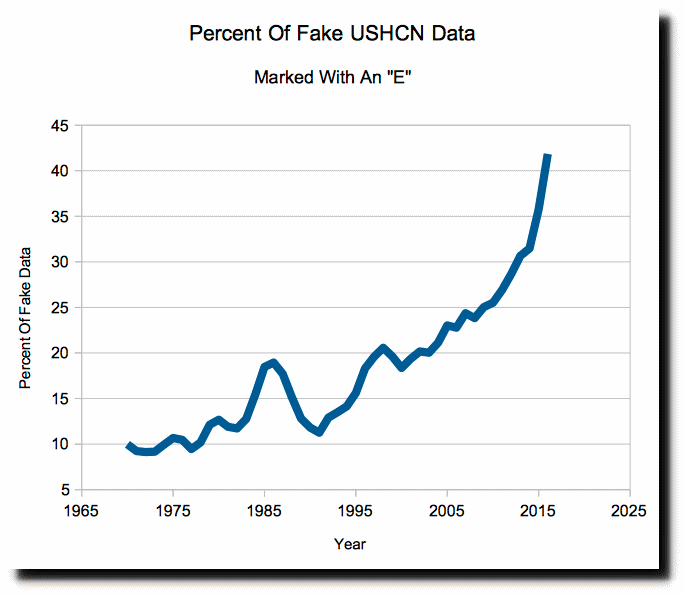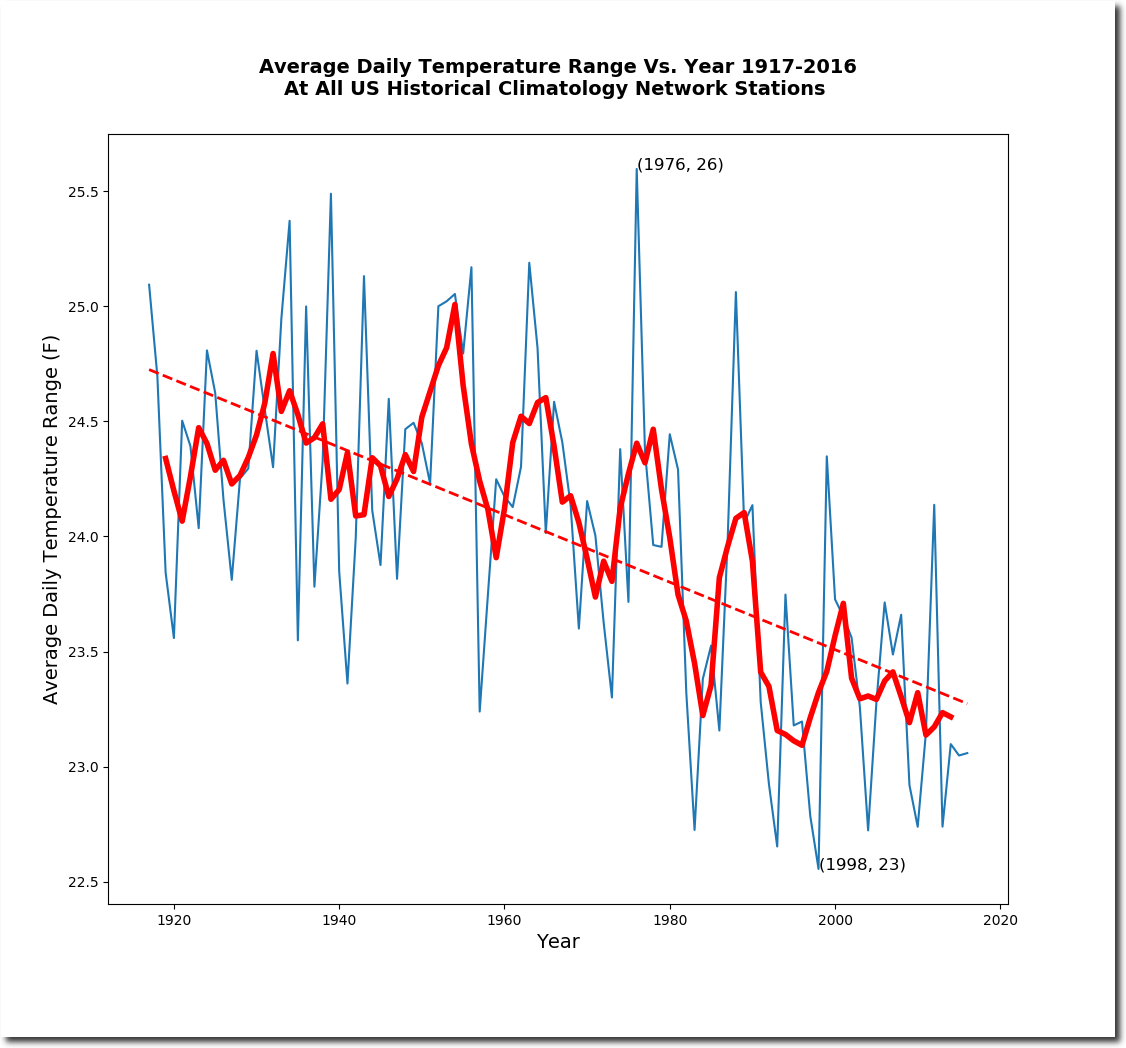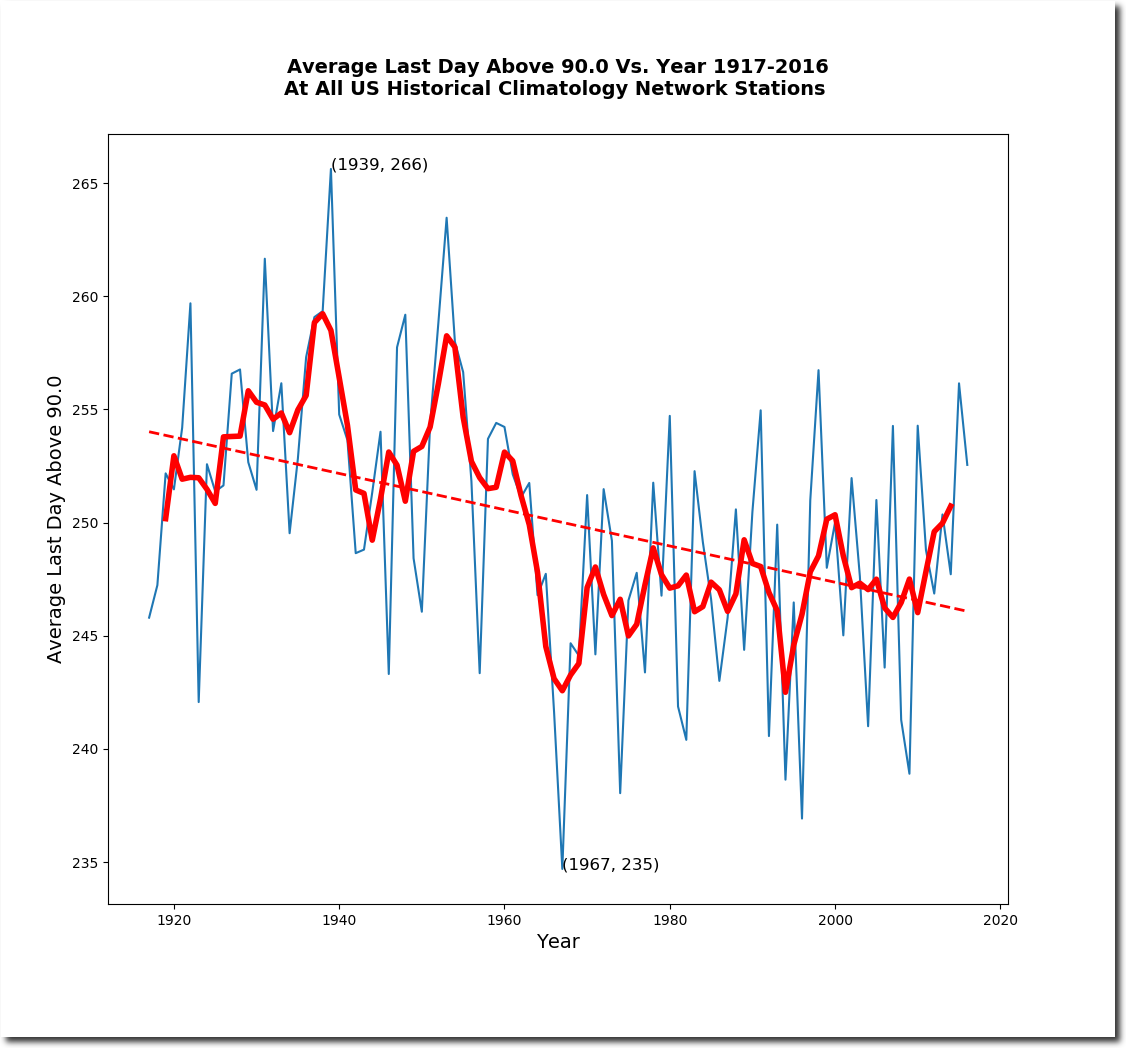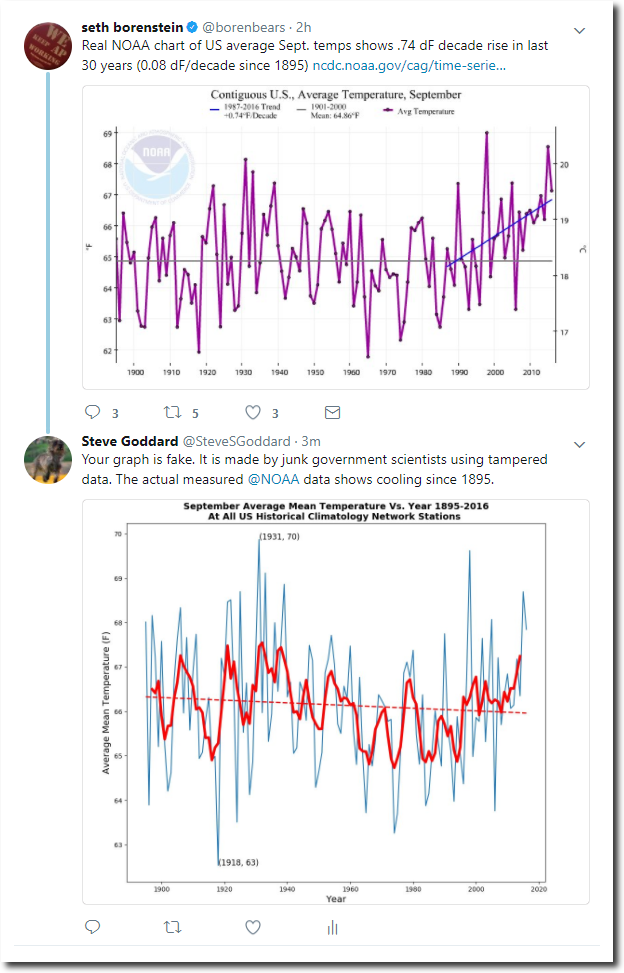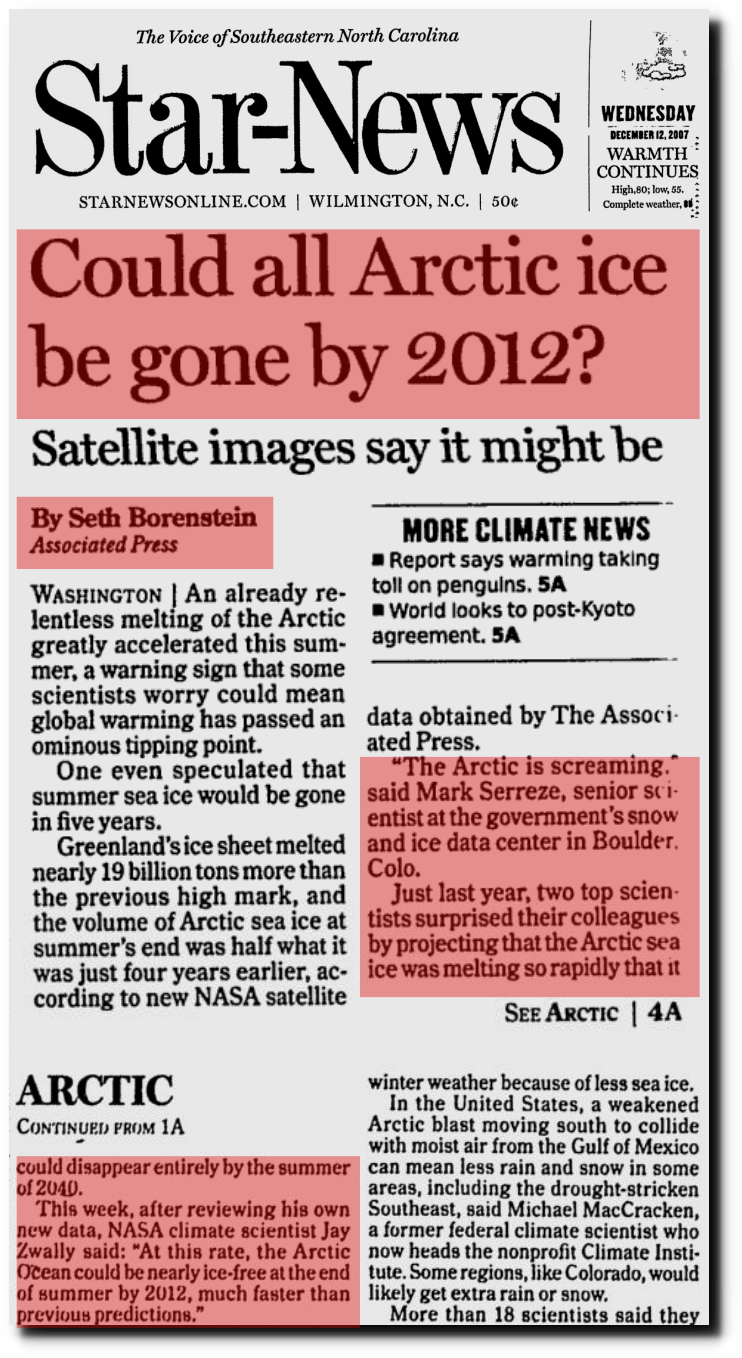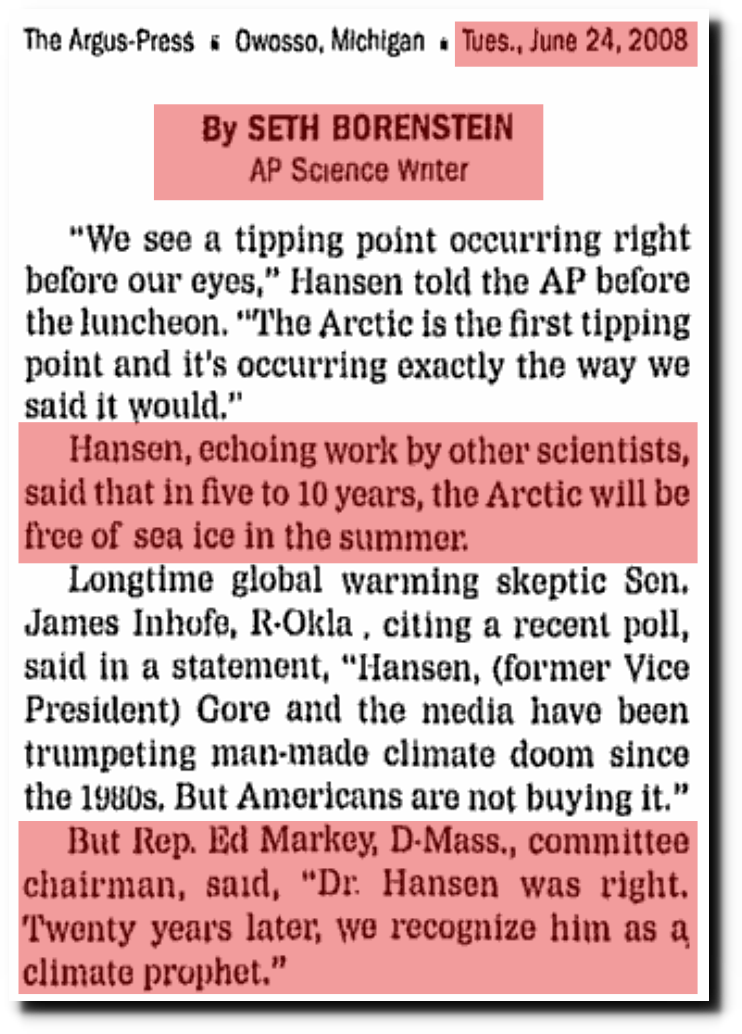Claiming to speak for science, Seth “Arctic will be ice-free by 2012” Borenstein says the first fall freeze is coming later in the US since the 1980’s.
Science Says: Jack Frost nipping at your nose ever later
I tested this out, and “confirmed” the findings in the study. There was no trend in the date of the first autumn freeze prior to the 1980’s, and a hockey stick since then.
This didn’t make any sense to me, because average October minimum temperatures haven’t changed, and because autumn snow cover has increased greatly – indicating that Arctic air is spilling further south than it used to in October.
Rutgers University Climate Lab :: Global Snow Lab
Rutgers University Climate Lab :: Global Snow Lab
So I looked at what was going on with the data. The hockey stick upwards coincides with NOAA’s massive loss of station data since the 1980’s, which makes a downwards hockey stick.
More than 40% of the USHCN monthly data is now fake.
If 40% of stations are failing to report in October, that pushes the date of the first freeze out by more than 12 days (40% of 31 days.) Average monthly temperatures aren’t affected much by intermittent data loss, but metrics like this one are heavily affected.
It is very likely that a large portion of the upwards trend since 1980 is simply due to data loss. If there is no data for a particular station in October, then the first freeze will be pushed out at least 30 days at that station. As more daily data is lost, the average date gets pushed out further and further, causing a hockey stick. The trend is completely fake junk science, which are NOAA and Borenstein trademarks.
Additionally, the diurnal temperature variation is decreasing in the US due to Urban Heat Island issues.
Summers are getting shorter. The last 90 degree day comes earlier than it did a century ago. (Data loss would have the opposite effect, and cause it come later.)
This junk science is nothing new for Seth, who loves his fake post-1980 hockey sticks.
And his fake Arctic forecasts.
Star-News – Google News Archive Search
The Argus-Press – Google News Archive Search
There is no indication that fall freezes are coming later. We have already had two snowstorms in Boulder this month, with a third expected tomorrow.

